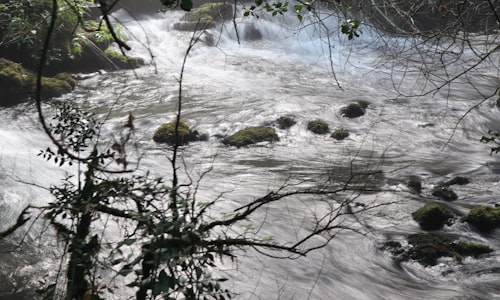August 1945 facts
While investigating facts about August 1945, I found out little known, but curios details like:
On August 14 1945, more than 1,000 Japanese officers raided the Imperial palace to destroy the recording of the Emperor's speech of surrender. Confused by the layout of the palace, the rebels never found the recording. It was later smuggled outside in basket of women's underwear for broadcast.
The Indian Army during World War II began the war, in 1939, numbering just under 200,000 men.By the end of the war, it had become the largest volunteer army in history, rising to over 2.5 million men in August 1945
In my opinion, it is useful to put together a list of the most interesting details from trusted sources that I've come across. Here are 38 of the best facts about August 1945 I managed to collect.
-
August von Mackensen was a World War I Field Marshal who lived from 1849 to late 1945, which means he lived through the Kingdom of Prussia, North German Confederation, German Empire, Weimar Republic, Third Reich and the Allied Occupation of Germany.
-
After the bombings of Hiroshima and Nagasaki, but before Japan's surrender, the United States was preparing 7 additional atomic bombs ready to use as early as August 19th, 1945.
-
On August 4, 1945 the Soviet Union used the Young Pioneer Organization as a front to gift the Great Seal of the United States to a US Ambassador. It was bugged. It remained in his office for seven years before detection.
-
August 6th, 1945 at 8:16 a.m. is the deadliest moment in history, killing over 70,000 people in 5 seconds.
-
Japan planned to deploy biological weapons against the city of San Diego, California, codenamed "Operation Cherry Blossoms at Night", which was set for action on September 22, 1945, but not realized due to Japan's surrender on August 15, 1945.
-
Rhode Island is the only U.S. state with a state holiday to commemorate Japan’s August World War II surrender in 1945. Victory Day, as it is called, is celebrated on the second Monday in August.
-
The Indian Army played an important role in both World Wars-----By the end of the Second World War it had become the largest volunteer army in history, rising to over 2.5 million men in August 1945.[MIC]
-
John F. Kennedy, after visiting Germany in August 1945 quoted- "After visiting these places, you can easily understand how that within a few years Hitler will emerge from the hatred that surrounds him now as one of the most significant figures who ever lived".
-
The Japanese city Kokura was the primary target for the "Fat Man" bomb on August 9, 1945, but on the morning of the raid, the city was obscured by clouds and the mission commander diverted to the secondary target, Nagasaki.

What is true about august 1945?
You can easily fact check it by examining the linked well-known sources.
Along with Japanese citizens the atomic bombing of Hiroshima also claimed the lives of 12 American POWs who were imprisoned in the city on 6 August 1945. A memorial plaque was erected to the airmen in 1998.
The President's speech in Independence Day was filmed on 6 August 1995 in front of an old aeroplane hangar. The hangar once housed the Enola Gay, which dropped the atomic bomb on Hiroshima exactly 50 years earlier on 6 August 1945. - source
On August 9th, 1945, a B-29 bomber left the island of Tinian intending to drop a plutonium bomb on the city of Kokura. On arriving at the target, the plane found it obscured by clouds. It turned south and went to its secondary target: Nagasaki. - source
Nagasaki was a secondary target on 9 August 1945, Kokura, Japan was the primary target of the 'fat man', but the approach was scrapped after cloud coverage prevented the visual approach on the city.
The Soviet Union gave the US ambassador a carving of the US seal as a “gesture of friendship” in August 1945. It hung in his Moscow study for 7 years before someone realized it was actually a covert listening device. It’s one of the first bugs to use passive audio transmission (no power supply). - source
The US was ready to drop a third nuclear bomb on Japan by August 19, 1945. Japan surrendered on August 15, 1945.
The entire declaration of independence of Indonesia reads: "We the people of Indonesia hereby declare the independence of Indonesia. Matters which concern the transfer of power and other things will be executed by careful means and in the shortest possible time. Djarkata, 17 August 1945."
The Soviet Union didn't attack Japan in World War II until August 8, 1945: two days after the bombing in Hiroshima
The Japanese had a program to research nuclear weapons in World War 2 but was unable to progress after the atomic bombings of Hiroshima and Nagasaki and the Japanese Surrender in August 1945
He set up the research station at Los Alamos, New Mexico and the first atomic bomb test occurred on July 16, 1945 and in August two bombs were dropped on Japan.
The components for the bomb that America dropped on Hiroshima on August 6, 1945 left San Francisco just four hours after the first successful atomic bomb test in history, in the New Mexico desert.